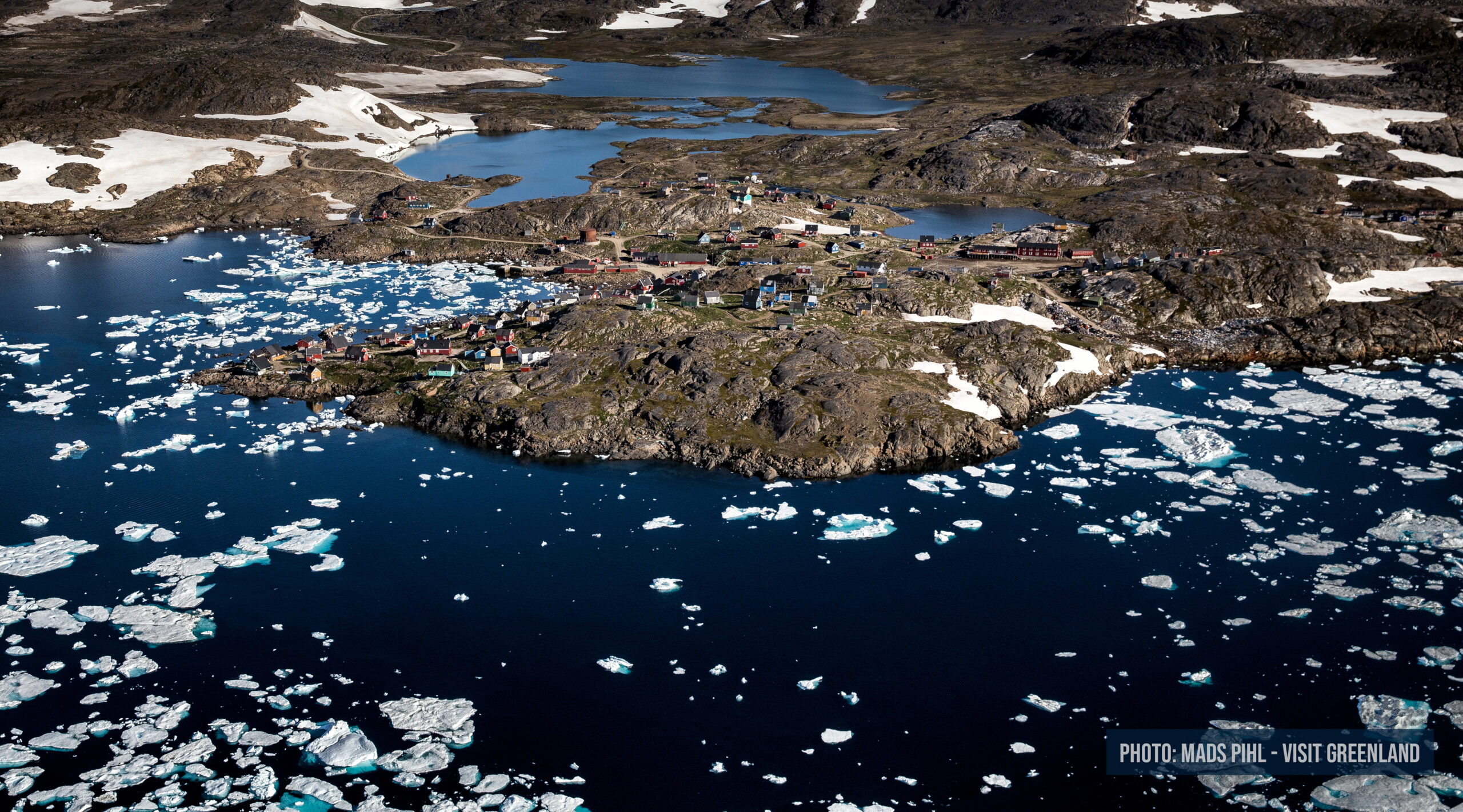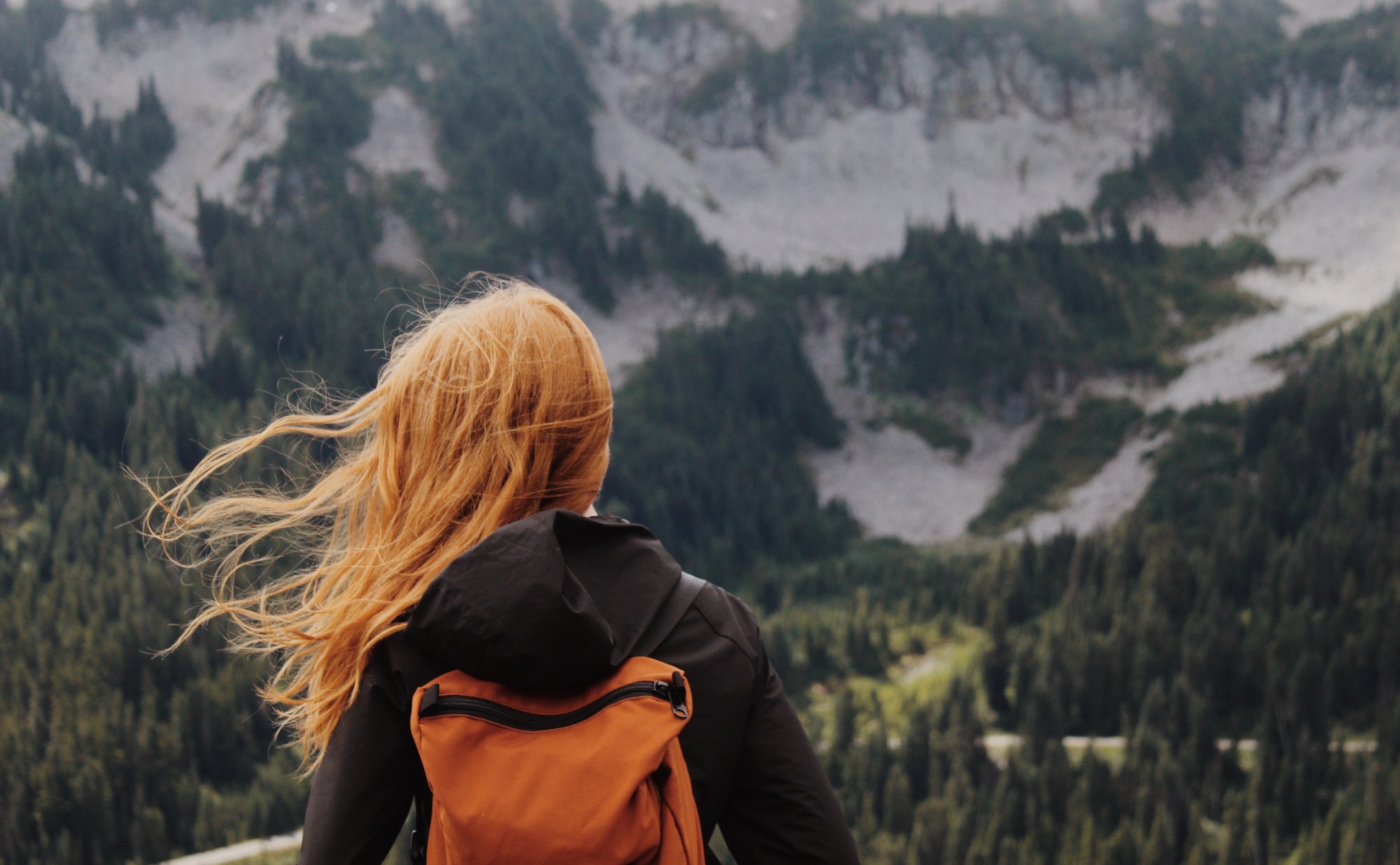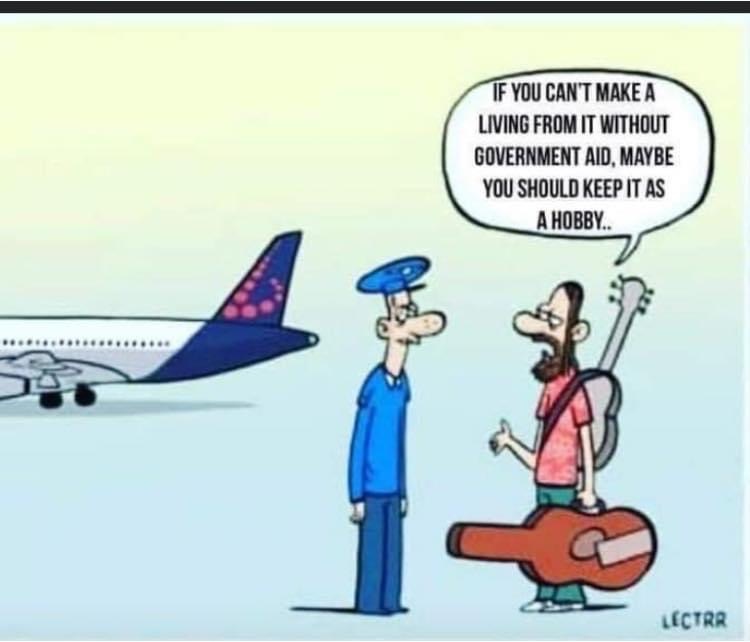By Elizabeth Cooper
◦ 2 min read ◦
It has now been more than a year since researchers have been forced to move most of their data collection online and, where this has not been possible, to cancel it completely. Doing research remotely has revealed some benefits: it is much cheaper, it is better for the environment, and it usually saves time, to name just a few. So, why should we go back to the “field” when this is all over? The following is a story about the importance of ‘being there’ – and about how the things that go wrong can indirectly lead to better quality research.
The settlement of Kulusuk is home to about 200 people and is located on a small island off the eastern coast of Greenland. As I touch down in a helicopter, I can see nothing but empty and dull terrain – different shades of brown rock contrasted against the electric blue sea, which glitters with the even brighter white of scattered icebergs floating endlessly into the distance.
The year is 2017 – summer, although the untrained eye wouldn’t guess so, judging by the snow-covered mountains drawn sharply on the horizon. I have been travelling around Greenland for a few weeks now, and my task is to interview tourists about their experiences in the country, as part of a market research project for Greenland’s national tourism board.
The problem with interviewing tourists in one of the most remote places in the world, however, is that there aren’t that many. This is a problem I have been dealing with throughout my travels, but one that is markedly more pronounced here on the east coast. There simply aren’t that many tourists who have the perfect combination of sufficient wealth and excess adventurous spirit that it takes to travel to Greenland, and most of those who do, head to the more accessible and well-equipped towns on the west coast. Here in the east, things feel incredibly…local. It’s an atmosphere that simultaneously excites me and fills me with panic about how on earth I will secure enough interviews to make my research statistically valid.
I drop my bags off at the town’s only hotel and start preparing for the twenty minute walk into the settlement itself, where I’ve heard there is a museum – and perhaps the chance to bump into a tourist or two. However, as I begin to march determined out of the door, a member of the hotel staff blocks me. She tells me that there is a “piteraq” on its way, and although I have no idea what a piteraq is, her expression in itself is grave enough to stop me in my tracks and make me step back into the warmth for an explanation.
The Greenlandic word “piteraq” literally translates to “the thing that attacks you”, and refers to a cold and incredibly fierce wind that originates on the polar ice cap and sweeps down the east coast. With wind speeds that are usually comparable to a category 1 or 2 hurricane, these storms effectively cut off the island for days on end, as flying in or out, or sailing anywhere, is made impossible.
Overcome by renewed frustration about the feasibility of my research, I head upstairs to the hotel restaurant, where the first stages of the piteraq are already playing out on its huge, panoramic windows – spatters of tiny raindrops are gathering on the glass, accompanied in surround sound by the occasional distant roar of wind gusts picking up momentum. To my surprise, the restaurant is full. As I soon learn, these are tourists who were supposed to be passing through, but who have now become stranded due to the weather. Grabbing a plate at the buffet, I sit down with an Austrian family who invite me to play cards with them.
Over the next two days, I don’t go anywhere – and neither do the tourists. We are imprisoned by the storm, and for lack of anything better to do, my fellow inmates are happy to engage me. I move from table to table, drinking coffee after coffee, and then wine after wine, with all of the other characters who have found themselves at this point in the world at this point in time. I hear stories from the British man who accidentally left all of his luggage (including his phone and wallet) on the tarmac at Reykjavik airport, and, upon arrival in Greenland, knocked on the nearest front door, told the family who lived there his story, and was taken in by them for three days; the elderly Canadian woman who had been dreaming about visiting Greenland since she was 14, when she saw a picture of a Greenlandic Inuit woman who, to her, “exuded happiness”; the two skittish French ladies who mistook a sled dog for a polar bear and sent the whole town into emergency response mode for no reason.
The skies after a piteraq are some of the bluest and clearest skies you will ever see in Greenland – it’s like going to sleep in black and white and waking up in colour. Mother Nature’s twisted sense of humour, I conclude, as I finally head to the airport, with a folder full of interview notes, a deeper connection to my research environment, and a newfound appreciation for going with the flow.
About the Author
Elizabeth Cooper is a PhD Fellow at Copenhagen Business School, within the Department of Management, Society and Communication. Her research aims to link the fields of behavioural science and tourism, by experimenting with strategies to ‘nudge’ cruise tourists into behaving in more sustainable ways, specifically in the ports of Greenland.


